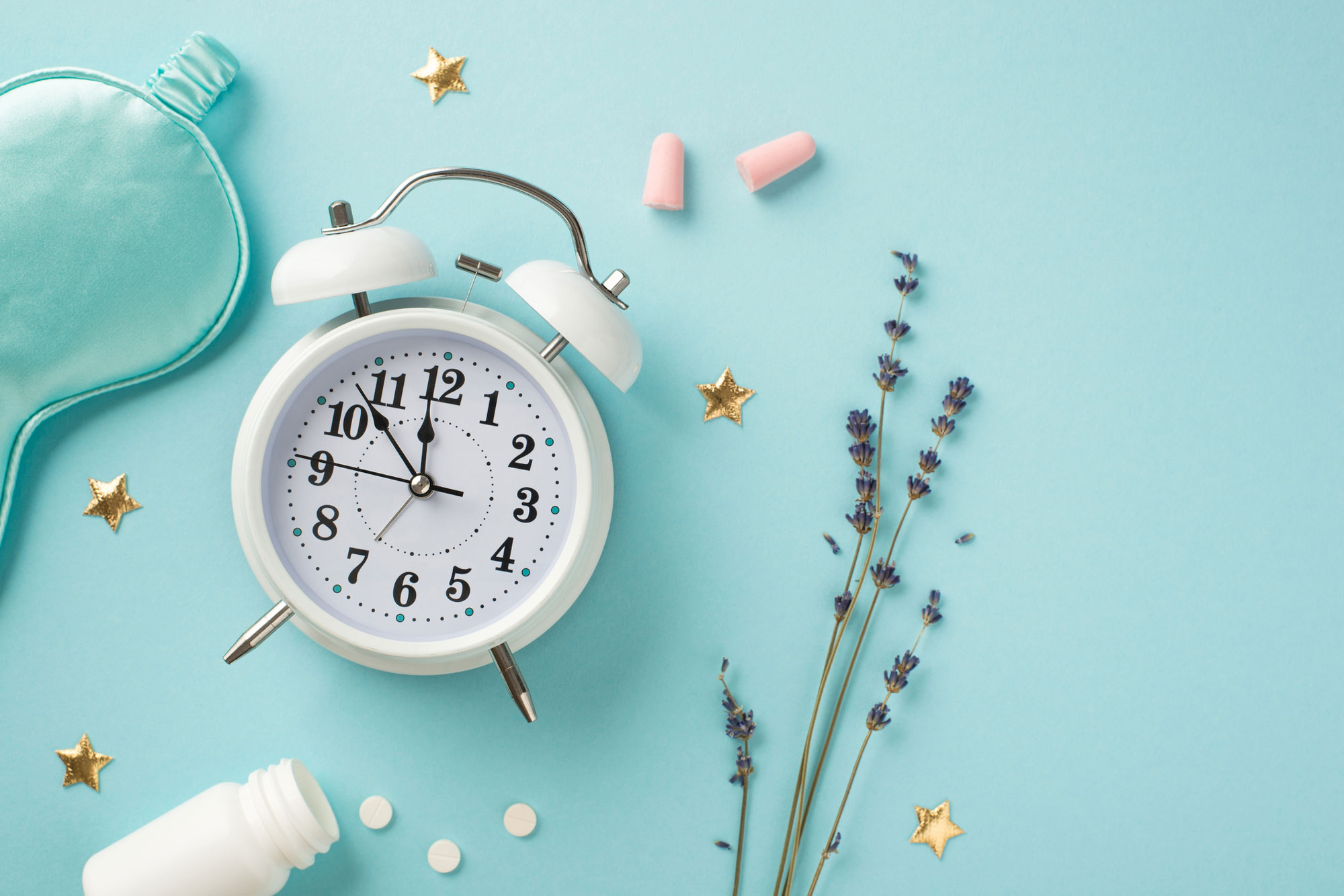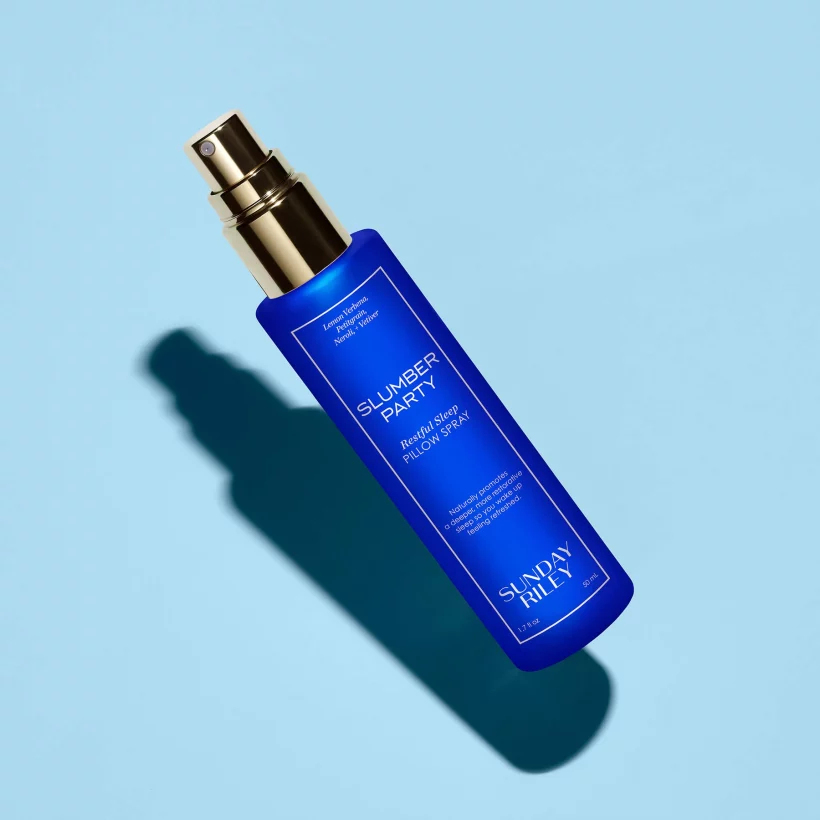Forget designer shoes or the latest ‘it’ bag; the biggest luxury is a solid eight hours of sleep. There’s no better feeling than waking up fresh, knowing you’ve slept soundly through the night. However, for many of us, rest doesn’t come easy. The CDC says “insufficient sleep [has become] a public health epidemic” with 70% of American adults saying they don’t sleep well at least one night a month and 11% reporting they get insufficient sleep every night. Whether it’s getting in bed and struggling to drift off or waking up in the night rehearsing every bad thing you have ever said, that much-coveted peaceful sleep is hard to come by for some of us.
“11% of American adults report getting insufficient sleep every night.”
Of course, prescription sleeping pills are one solution, and completely up to you and your doctor to determine the best course of treatment. But as with any medicine, sleeping pills come with their issues. There are often side effects,, and they are not advised to be used in the long term. This is where so-called sleep supplements come in. These natural sleep aids tend to help you drift off gently and improve your slumber homeopathically. Here we dig a little deeper…
Meet the Experts
Lisa Sanfilippo is a yoga teacher, psychotherapist, and author of Sleep Recovery.
The Benefits of Sleep Supplements
When used alongside healthy sleep hygiene (think regular bedtimes, a cool dark bedroom, and no blue light emitting tech), sleep supplements can help you fall asleep easier and stay asleep longer. “They create the nutritional building blocks you need for your body’s hormones and neurochemistry to function properly for sleep,” Lisa Sanfilippo, yoga teacher, psychotherapist, and author of Sleep Recovery, explains.
How to Use Sleep Supplements
Much like all things medical, it’s best to seek help from a professional instead of just dabbling yourself. “Sometimes self-diagnosis works, but most often it’s just an expensive shot in the dark,” Sanfilippo says. While a traditional doctor may prescribe medical sleeping pills, a visit to a certified naturopath, nutritionist, or herbalist can advise regarding supplements. “They can make sure you’re getting the nutrition from your food and can digest and make use of the supplements you take,” she adds.
It’s also best not to rely on supplements and supplements only. They are one piece of the sleeping puzzle. “You can’t bomb around nervous and stressed all day and expect your nighttime supplement to make up for the lack of down time, mental digestion, and ability to rest,” Sanfilippo points out. Instead, she opts to see them as a booster that can help retrain your body back into a healthy sleeping pattern.
5 Common Type of Sleep Supplements

CBD
Derived from the canna
bis plant, this ingredient has flooded the health and wellness space in the last few years, with many singing its praises for sleep. For those it works for, it can be a beneficial tool. “It can create calm and induce sleep,” Sanfilippo says. However, on the flip side, it’s one to watch out for regarding dependency. “You can build a tolerance quite quickly,” she adds.
Melatonin
Our brain naturally produces melatonin daily when we shift from daytime to nighttime. It can be beneficial to aid sleep but is best used on a short-term basis as your body becomes accustomed to the new levels you are taking over time. However, it is great to use occasionally, like to combat jet lag (or social jet lag, for that matter) which is caused by the change in circadian rhythms and light. “Be wary as melatonin can interfere with antidepressants, so it’s crucial to check with your doctor before taking,” Sanfilippo cautions.
5HTP
This is the precursor to serotonin, the feel-good neurochemical that our bodies convert into melatonin at night. It helps stimulate melatonin production and improve the natural sleep cycle. However, much like melatonin, it’s advised not to take it for the long term. It can also mess up other drugs. “It can interfere with other medications such as antidepressants and birth control so consult your doctor or a naturopath beforehand,” Sanfilippo advises.

Magnesium
This is a key mineral used for multiple processes in the body. Taking this daily supplement to increase your levels can support muscle health and the heart and aid sleep. “It’s great for relaxing and easing muscle strain and the body-to-brain connection,” Sanfilippo explains. “It’s really lovely to take in the form of a spray or cream at night after a bath or shower and is especially beneficial if you’ve been particularly stressed, exercising a lot, or feeling achy,” she adds. Unlike the previously mentioned supplements, you can take magnesium long-term daily.
B Vitamins
B vitamins can also be extremely helpful when coping with long-term stress undermining sleep. “Vitamin B-complex supplements can help smooth out your mood and make falling asleep easier,” Sanfilippo says. Always consult a naturopath to find the proper levels and types of each B vitamin your body needs.
The Downsides to Sleep Supplements
While sleep supplements have fewer risks than traditional sleeping pills, there are things to watch out for. Sanfilippo highlights that they can interact with other medications, so that’s worth checking with a health professional. There is also the issue of dependency with some supplements. This may mean you need to up the dosage as your body becomes more used to the substance.
It’s also worth pointing out that nothing is a total panacea, including sleep supplements. Sleep is deeply linked to our physical and mental state, and supplements won’t treat any underlying issues. “There is a good argument to be made for band-aids, but they don’t heal the wounds underneath,” Sanfilippo notes. So, for example, if you’re anxious because of your job, you need to find ways to tackle or reduce this stress and look for better coping techniques for sleeping.
We only recommend products we have independently researched, tested, and loved. If you purchase a product found through our links, Sunday Edit may earn an affiliate commission.









